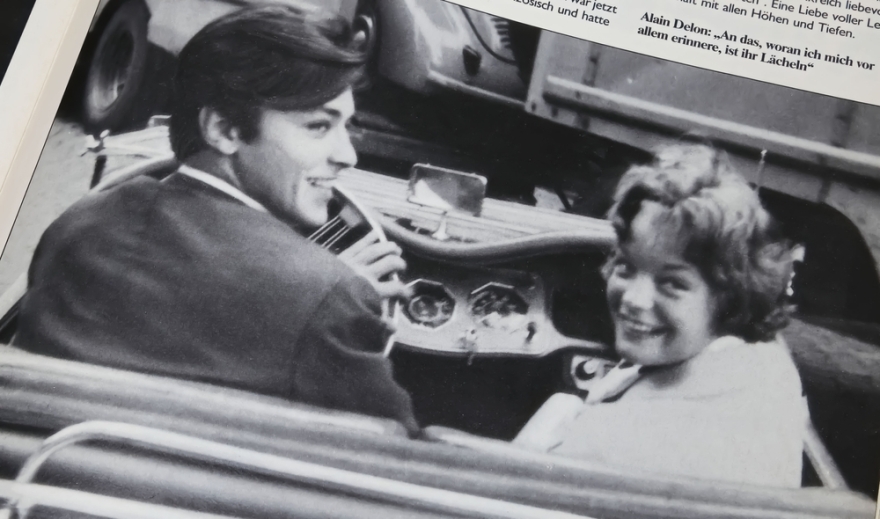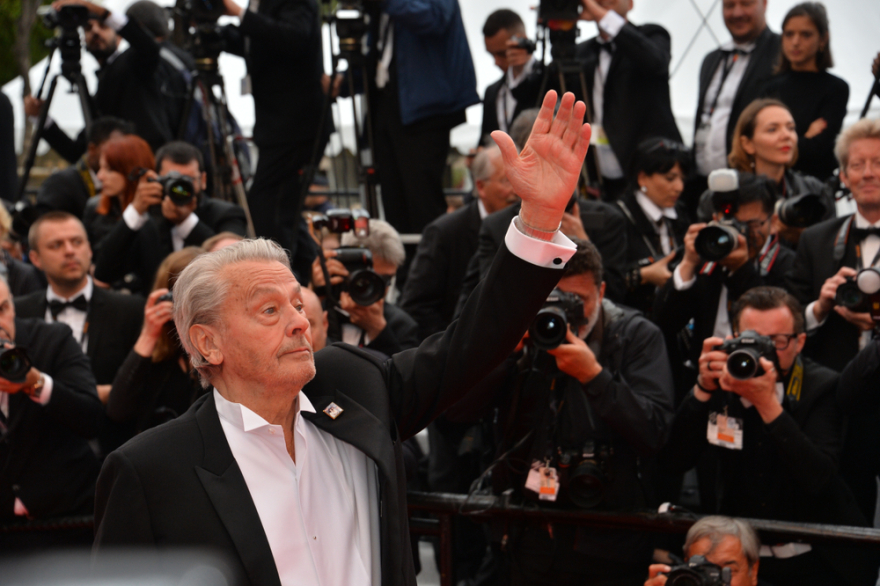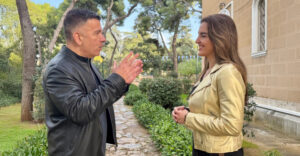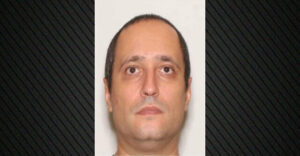Impossibly handsome yet dark, deeply romantic yet cynical, born to captivate yet solitary, sometimes an angel and at times a devil… These were the two diametrically opposed aspects of Alain Delon’s sculpted face, who passed away yesterday at the age of 88, marking the end of an era that he had indelibly shaped.
This contradictory nature, which remained unchanged throughout his long life and influenced all his personal relationships and choices, was the result of a profound and lifelong wound, inflicted upon his childhood soul by the abandonment of his parents. He was just four years old when they separated and made the harsh decision to give him to another family to raise so they could continue with their lives.
“I learned early what separation, abandonment, and loneliness were… How do you understand that your parents got rid of you when you were just four years old? I wasn’t their priority. I was four years old, and they sent me away… I’ve never seen my parents together. My father on one side, my mother on the other. Each on a shore, and me on an island in between…” he confessed in a deeply personal interview he gave in 2018 to Paris Match.
Thus, he transformed into a wild and deeply unhappy child who did everything he could to attract attention. He got into fights, was a terrible student, was constantly expelled from schools, ran away from home, and even enlisted in the navy at just 17 years old. In the meantime, his adoptive parents had died, and guardianship reverted to his biological parents, who, having now formed new families, had no reserves of love and affection for this wild creature they had created.

Alain Delon with Romy Schneider
This wild child would later transform into a tragic hero, who throughout his life would continue to desperately seek the acceptance and love he was deprived of as a child in any way he could. Whether by seducing women around the world with his otherworldly beauty or by brilliantly portraying the dark, rebellious, yet tender heroes in the films of Visconti, Antonioni, and other significant directors. Within just a few years, he became the most desired man in the world, the ultimate cinematic icon, and he seemed to enjoy it.
“I want to be loved as much as I love myself,” he declared with great egocentrism and deep arrogance, revealing, however, through this cynical statement, the great, unhealed wound within him. A wound that no success, no love affair, no relationship, no woman could heal, though many tried with all their might.
First and foremost was Romy Schneider, with whom he had a great love affair that lasted five years, from 1959 to 1963, and although he left her, leaving her a letter confessing that he was leaving with another woman, his later wife Nathalie with whom he had his son Anthony, Romy remained closely tied to him throughout her short and tragic life, not hesitating to publicly state that he was the most important man of her life.
The last night they spent together, with her dead at just 43 years old, overcome by the pain of losing her 14-year-old son, and him beside her, looking at her heartbroken, was perhaps the only moment he realized that she was the great love of his life. The poignant love letter he wrote to her on that tragic night says it all: “I see you sleeping. I’m with you, beside your bed. You’re wearing a long black dress with red embroidery on the bodice. They’re flowers, I think, but I don’t look at them. I’m saying goodbye, the biggest goodbye, my Puppelé. That’s what I called you. In German, it means ‘little doll’. I’m not looking at the flowers, but at your face, and I think you’re beautiful, and maybe you’ve never been so beautiful. I also think this is the first time in my life—and in yours—that I see you calm and relieved. You’re so peaceful, you’re so lovely, how beautiful you are. It’s as if a hand gently erased from your face all the tensions, all the anxieties of misfortune. I watch you sleep. They tell me you’re dead. I think of you, of me, of us… You came from Vienna, and I waited for you in Paris with a bouquet of flowers I didn’t know how to hold… And then I fell madly in love with you. And you fell in love with me too. My God, we were young, as we were also happy… Then life… our life, which is nobody’s business, separated us… My Puppelé, I look at you again and again. I want to devour you with my eyes and tell you again and again that you’ve never been so beautiful and calm. Rest. I’m here. I learned a little German with you. Ich liebe dich. I love you. I love you, my Puppelé.”

Yet even the pain of this great loss was not enough to change him. He continued to fall madly in love, and after a few years, to seek a new flame, a new passion to fill the vast internal void left inside him by the lack of parental love.
“There are voids that will never be filled. And even when I was living with a woman, when I loved a woman, I felt alone. I’ve always felt that way. This loneliness that I always carried with me certainly dates back to my childhood. I was just four years old when I understood that those you love most can abandon you,” he confessed in one of his last interviews.
Unfortunately, his children, Anthony, Alain-Fabien, and Anouchka, whom he had with his 15-year partner, Dutch model Rosalie van Breemen, and also Ari Boulogne, the child of his love affair with German singer and actress Nico, whom he never acknowledged, born in 1962 and died in 2023 at the age of 60, could not fill these emotional gaps. His relationship with his two sons, in particular, was consistently explosive, marked by constant tensions and long periods of estrangement: “I’m not sure I was a good father to them, nor a good grandfather to my grandchildren. Was I ready? I don’t believe so…” he admitted.
How could he, after all, offer his children the deep, pure, unconditional love that he never knew? Because he managed to gain his parents’ attention, but the love he so desperately needed, he never received: “Both of them came closer to me when I became famous. Suddenly, they remembered they had a son. My mother began calling herself Madame Delon even though her last name was Boulogne. She had become a groupie and no longer a mother. As for my father, he was more present at the end of his life. But all that doesn’t make up for what I lacked as a child, what I was not given—the love of my parents.”
Ask me anything
Explore related questions





